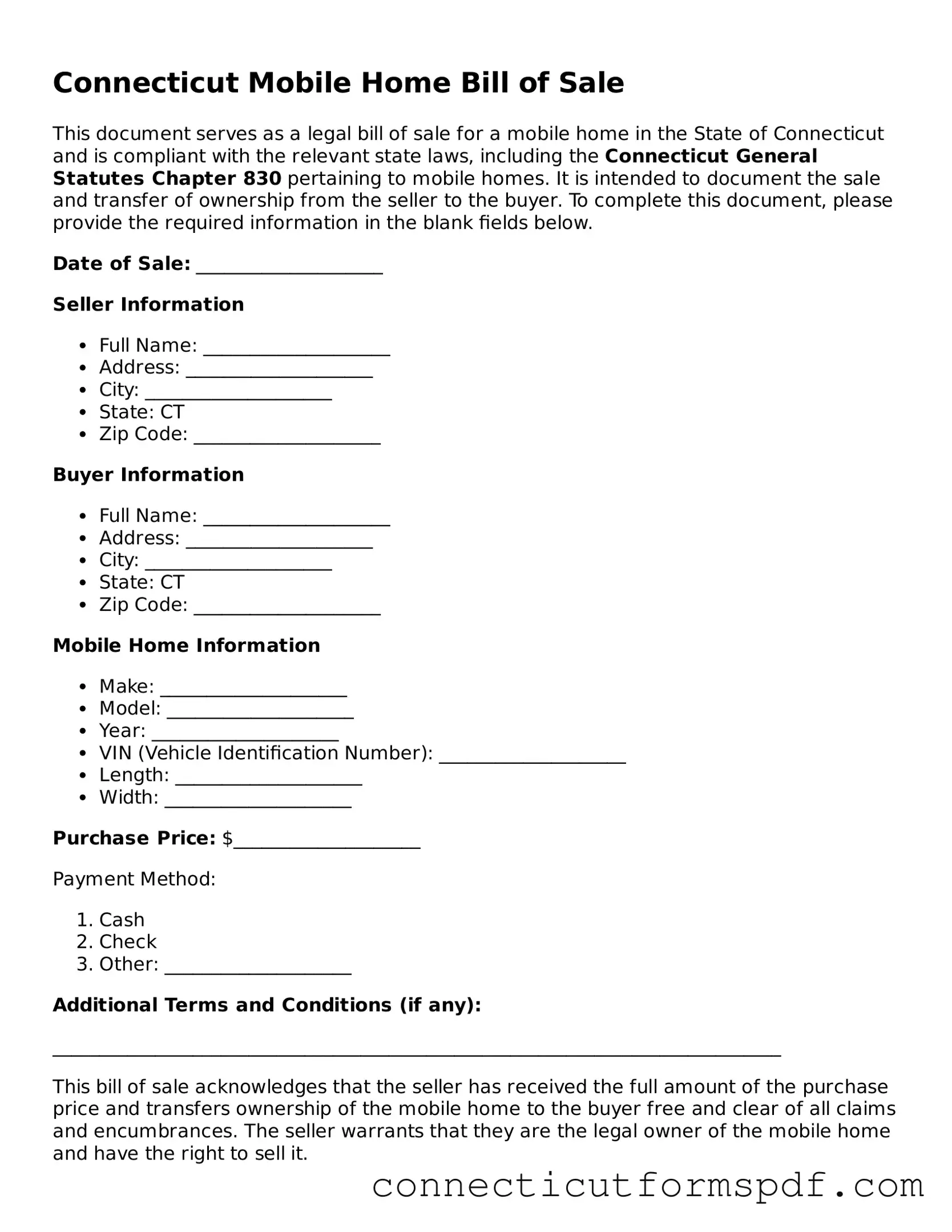Connecticut Mobile Home Bill of Sale Form
The Connecticut Mobile Home Bill of Sale form is a legal document that facilitates the process of selling or buying a mobile home in the state of Connecticut, ensuring all transactions are properly documented and legally compliant. By providing vital information such as the seller's and buyer's details, mobile home description, and sale conditions, it protects all parties involved. For a smooth and legally sound transaction, fill out the Connecticut Mobile Home Bill of Sale form by clicking the button below.
Launch Editor Now

Connecticut Mobile Home Bill of Sale Form
Launch Editor Now

Launch Editor Now
or
Click for Mobile Home Bill of Sale PDF
Your form is not complete yet
Edit and complete Mobile Home Bill of Sale online in just a few steps.